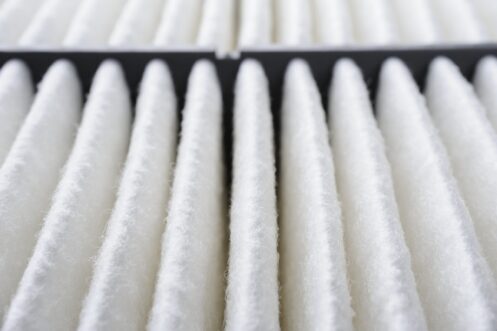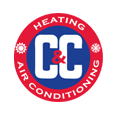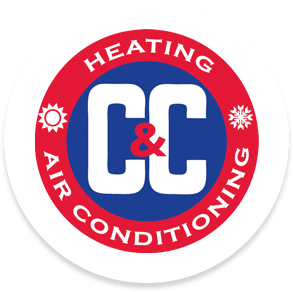10 Easy Ways You Can Improve Indoor Air Quality

It can be surprising to learn how many toxins may be present in what appears to be healthy and clean indoor air. The Environmental Protection Agency (EPA) even states that indoor air quality may be worse than the air outside. Many cleaning products contribute to the pollution of the air inside your home. Breathing in unhealthy air can lead to respiratory illnesses such as asthma and lung cancer. In addition, it can aggravate allergic reaction symptoms and skin problems. The following are ways you can improve indoor air quality, thus protecting your health and that of your family.
1. Change Air Filters Regularly
One of the easiest and most affordable ways to maintain clean air in your home is by regularly cleaning and changing the air filters in your HVAC system. You should be able to do this easily by yourself. Clean air filters help save on your utility bills significantly as your system does not strain to keep your indoor air clean. Even though it is recommended that you change the air filters at least once every 90 days, this frequency should depend on the usage of the filter. If you have a pet or someone smokes in your home, you should change the filters at least once every three weeks. If you live alone and do not suffer from respiratory illnesses, you can change them twice yearly. Also, you need to consider the efficiency of the filters to determine how frequently to change them.
2. Ventilate
You can also improve indoor air quality through proper ventilation. It can help regulate the humidity and airborne contaminants inside your home, which are both health hazards. High humidity inside your home promotes the growth of mold. High humidity can result from poor construction or inadequate air exchange. Your home’s ideal relative humidity level is somewhere between 30-60%. Inadequate ventilation increases moisture levels, especially during the winter, since normal activities such as cooking and bathing increase moisture. The easiest way to ventilate your house is through opening your doors and windows.
3. Indoor Plants
NASA researchers discovered that some plants have air-purifying abilities. There are many plant varieties that can reduce indoor air pollution. For instance, spider plants and Boston ivy can breathe in toxins such as carbon dioxide and release clean air into your home. These plants also add to the aesthetics of your home. Other plants with the same capabilities include the bamboo palm, weeping fig, and dragon tree.
4. Avoid Smoking Inside the House
If you are a smoker, smoking inside your home also harms the indoor air quality. Smoke is among the leading pollutants in indoor air. Cigarette smoke contains numerous chemicals that are health hazards. The toxic particles can remain airborne and harmful for up to five hours. Furthermore, secondhand smoke can be even more dangerous to children in your home. It also has a very bad odor that can spread throughout your home. Ensure that anyone who wants to smoke does it outside.
5. Monitor Radon Levels
Radon is a colorless and odorless radioactive gas. This gas can come from the naturally decaying uranium found in soil. Such a problem can affect any given home and has major effects. It is among the leading causes of lung cancer across the United States. By testing the levels of radon in your home ensures that there are no harmful gases in the air.
6. Dust Regularly
Dust, pollen, and pet dander can easily accumulate on your furniture, carpets, and walls. These particles can irritate your respiratory system if they become airborne. A vacuum cleaner can be a powerful force against these irritants. You should vacuum as regularly as you can to avoid any dust building up underneath beds and sofas. You should also consider changing your bedding regularly. Additionally, dust all the surfaces in your home regularly.
7. Invest in an Air Purifier
Some airborne particles are microscopic. It is very hard to clean something that you cannot even see. For that reason, you need an air purifier. The best purifying machines can trap up to 99.97% of pollutants. They do this by sucking in air, filtering it, and releasing it back inside your home. Some air purifiers are designed to release negative ions into the air, which neutralizes airborne bacteria and viruses. When shopping for an air purifier or air filtration system, look for one with a high clean air delivery rate. A purifier with a higher clean air delivery rate filters the air much faster. You can also invest in an air purifier with a fan to help distribute the newly filtered air throughout your home. Smaller air purifiers are also effective, but you need to move them around if you have a bigger room.
8. Use Natural Cleaning Products
You might not know it, but many household cleaners contain chemicals that are harmful to your respiratory health. Chlorine, ammonia, and aerosol sprays can be absorbed into carpets and upholstery in your home. Natural cleaning products such as vinegar, lemon juice, and baking soda can keep your home just as clean without releasing any harmful chemicals into the air you breathe.
9. Removing Moisture from the Air
Mold, viruses, and dust mites thrive well in heat and moisture, which makes bathrooms and kitchens their favorite places. Ensure you keep the door shut when you are taking a hot shower and turn on the extractor fan to get rid of steam. If it is hard to control your home’s humidity levels naturally, consider investing in a dehumidifier, which can effectively bring down the humidity to desired levels.
10. Get Rid of Air Fresheners
Air fresheners are great at masking awful odors. However, each squirt sprays a lot of synthetic chemicals inside your home. Consider changing the fake vanilla scent with fragrance-free products. You can go full natural with an essential oil burner. To neutralize cooking smells, leave a bowl of white vinegar in the kitchen overnight. You can also make a natural air freshener by mixing lemon juice and baking soda with hot water.
Final Thoughts
Clean and breathable air inside your home has major health benefits. Unhealthy air can create or aggravate existing respiratory illnesses. It can also influence the amount of sleep you have at night. The above points can give you an idea of where to start if you need to purify or improve the air quality in your home. If you need long-lasting solutions, ensure you seek help from local HVAC experts.
Contact the Professionals
Residents of Macomb County or any surrounding areas can rely on us at C & C Heating & Air Conditioning for indoor air quality services. We have a range of plans that can keep your indoor air clean and breathable. Call us today at C & C Heating & Air Conditioning and schedule an appointment. We are also experts in HVAC services, including installations, repairs, and maintenance. Also, we are here for you if you need assistance in duct cleaning and repairs.





